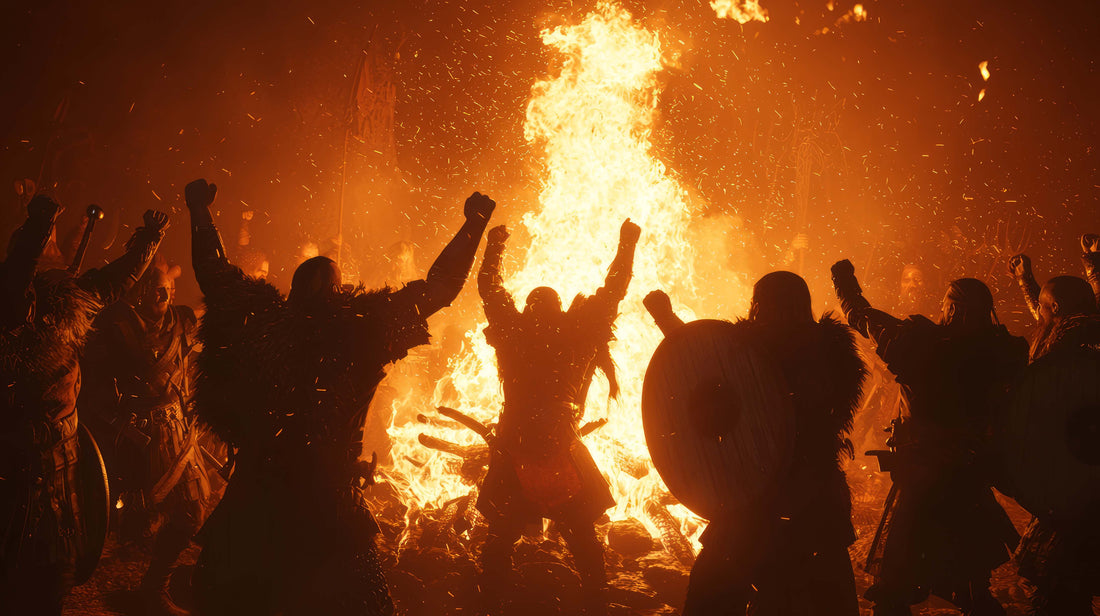
The Untold Origins of Vikings: Fierce Warriors, Savvy Traders, and Mythic Legends
The Untold Origins of the Vikings: Fierce Warriors, Savvy Traders, and Mythic Legends
When you hear the word Vikings, what comes to mind? Mighty ships cutting through stormy seas? Horned helmets (spoiler alert: they didn’t wear those)? Savage raids on unsuspecting villages? While all these ideas play into the Viking mythos, their real history is far more complex—and fascinating. Let’s set sail on a journey to uncover the roots of these legendary Norsemen, with a few surprising twists along the way.
Who Were the Vikings?
The Vikings were seafaring Scandinavians from modern-day Norway, Sweden, and Denmark. Active between roughly 793 and 1066 CE, this so-called "Viking Age" was marked by exploration, trading, and yes, raiding. However, calling all Scandinavians of the era "Vikings" isn’t quite accurate. The word Viking comes from the Old Norse vikingr, meaning "pirate" or "raider," and referred specifically to those who took to the sea. Think of it less as an ethnic identity and more as a job title—like being a freelancer, but with axes.
Viking Origins: Humble Beginnings
Long before they became the terror of medieval Europe, Scandinavians lived relatively quiet lives as farmers, hunters, and fisherfolk. Harsh winters and limited resources meant survival required adaptability. Over time, their ingenuity in boat-building and navigation gave rise to a culture uniquely suited to the seas.
Their legendary longships weren’t just tools of war—they were technological marvels. Sleek, fast, and capable of navigating both open oceans and shallow rivers, these vessels gave the Vikings unparalleled mobility. Imagine building a ship that could transport you across the Atlantic but also sneak up on an unsuspecting village upriver. Genius, right?
Why Did the Vikings Go "Viking"?
So, why did these Norse farmers suddenly take up raiding in the late 8th century? Historians point to several factors:
- Overpopulation: Scandinavia’s growing population put a strain on arable land.
- Wealth Gap: Chieftains seeking power needed treasure to win loyalty.
- European Weakness: The fall of the Roman Empire left many regions vulnerable.
- Adventure: Honestly, who wouldn’t want to see what’s over the horizon?
It’s no wonder the first recorded Viking raid on England, the infamous sacking of Lindisfarne in 793 CE, sent shockwaves through Europe.
The Softer Side of the Vikings
Despite their fearsome reputation, Vikings weren’t all about pillaging. They were master traders and explorers, connecting far-flung parts of the world. Viking artifacts have been found as far afield as Baghdad, Constantinople, and even North America. Yes, you read that right—Leif Erikson and his crew landed in Newfoundland around 500 years before Columbus set sail.
And let’s not forget their contributions to language. Words like berserk, ransack, and even sky come from Old Norse. So the next time you’re admiring the clouds, thank a Viking.
Fun Facts About the Vikings
- No Horns Here: The iconic horned helmets are a product of 19th-century opera costumes, not Viking history.
- Equality in Arms: Women in Viking society could own property, initiate divorce, and even wield weapons in battle. Shieldmaidens were no myth!
- Hygiene Masters: Vikings were surprisingly clean. Archaeologists have unearthed grooming kits with combs, tweezers, and ear spoons (yes, those were a thing).
- Chess, Anyone?: Vikings played a strategy game called hnefatafl, which is like chess’s cooler, older cousin.
Beyond the Myths
Today, we’re still captivated by the Vikings, whether through pop culture (hello, Vikings TV series!) or their enduring influence on history. They weren’t just marauders; they were adventurers, inventors, and trailblazers.
So next time you picture a Viking, skip the horns, and imagine someone building a ship, exploring the unknown, or trading silver for silks halfway across the world. They were more than warriors—they were dreamers with a thirst for discovery.
What’s your favorite Viking fact? Share it in the comments below!
